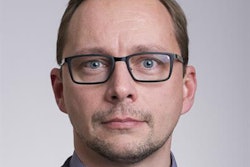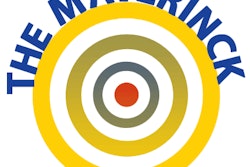After a detailed and lengthy investigation, a visiting professor at the Karolinska Institute has been cleared of allegations of scientific misconduct.
Visiting professor Dr. Paolo Macchiarini, PhD, had been accused of scientific misconduct in complaints filed by four physicians at Karolinska University Hospital who were themselves part of the research environment and, in some cases, co-authors of articles reported for scientific misconduct. The complaints were submitted in June, August, and September 2014, prompting an inquiry by the Karolinska Institute's vice chancellor.
The first paper describes the manufacture of a synthetic esophageal prosthesis and its functionality for transplantation into a rat. The concerns included the conclusions regarding the functionality of the prosthesis and the interpretation of CT scans.
The six other papers describe transplantations of a synthetic tracheal prosthesis in humans, namely three patients with tracheal diseases who were beyond the help of conventional surgery and who were given synthetic trachea coated with their own bone marrow-derived stem cells at Karolinska University Hospital.
The results concerning the patients' clinical progress as expressed in the papers did not match the patients' medical records as kept at Karolinska University Hospital, and there was no evidence that a synthetic tracheal transplant can develop into a functional airway, according to the physicians. They also questioned the claim that the first patient suffered a relapse of his tracheal cancer and surgery was therefore necessary.
As part of the inquiry, a statement of opinion was requested from professor emeritus Bengt Gerdin, who, upon examining the documents and information included in the complaint, Macchiarini's initial response, and the medical records from Karolinska University Hospital, submitted his conclusion in mid-May that the accused was indeed guilty of scientific misconduct.
Following the report submitted by Gerdin, Macchiarini and his co-authors submitted more than 1,000 pages of comments and documents, including medical records from the first patient's doctors in Iceland showing that on the crucial points, the description of his condition given in the articles was correct.
The documents Gerdin had access to lacked significant data on the pre- and postoperative status of two of the patients, the vice chancellor said. The comments sent in by Macchiarini and his co-authors had a significant influence on how the case has been assessed and show there was no misconduct, the vice chancellor added.
Also, the inquiry shows the interaction between Karolinska Institute and Karolinska University Hospital has not functioned satisfactorily, and the vice chancellor's decision promises improvements to procedures, regulations, and support structures for clinical trials and clinical therapy research. The line between clinical application and research when it comes to experimental therapy will need to be better defined, and clearer guidelines for academic research and academic healthcare will be drafted, according to a press release.
Macchiarini has been instructed to submit errata to the journals that published some of the scientific papers to clarify and rectify the failings the inquiry has brought to light.



















